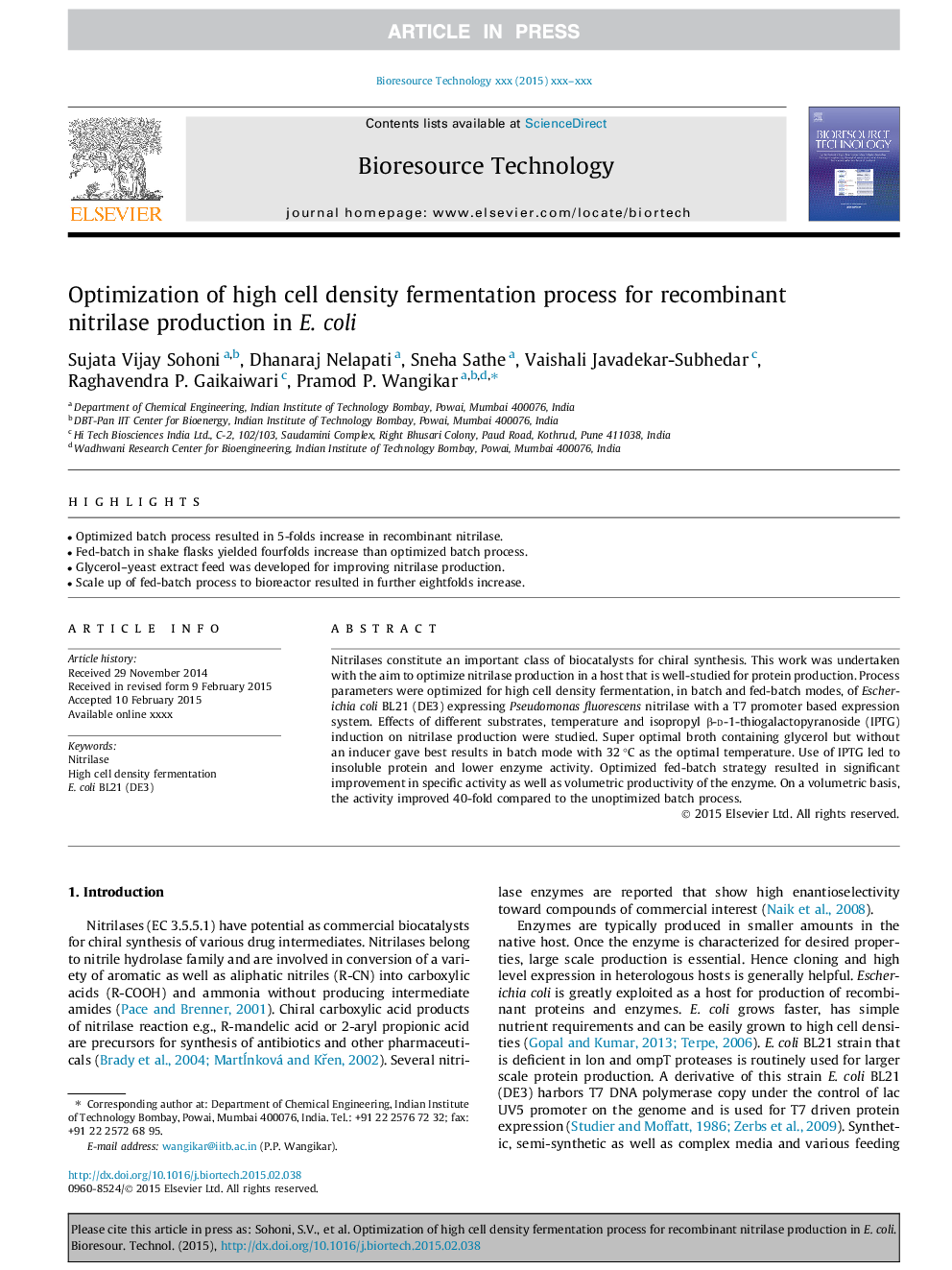| Article ID | Journal | Published Year | Pages | File Type |
|---|---|---|---|---|
| 679722 | Bioresource Technology | 2015 | 7 Pages |
Abstract
Nitrilases constitute an important class of biocatalysts for chiral synthesis. This work was undertaken with the aim to optimize nitrilase production in a host that is well-studied for protein production. Process parameters were optimized for high cell density fermentation, in batch and fed-batch modes, of Escherichia coli BL21 (DE3) expressing Pseudomonas fluorescens nitrilase with a T7 promoter based expression system. Effects of different substrates, temperature and isopropyl β-d-1-thiogalactopyranoside (IPTG) induction on nitrilase production were studied. Super optimal broth containing glycerol but without an inducer gave best results in batch mode with 32 °C as the optimal temperature. Use of IPTG led to insoluble protein and lower enzyme activity. Optimized fed-batch strategy resulted in significant improvement in specific activity as well as volumetric productivity of the enzyme. On a volumetric basis, the activity improved 40-fold compared to the unoptimized batch process.
Related Topics
Physical Sciences and Engineering
Chemical Engineering
Process Chemistry and Technology
Authors
Sujata Vijay Sohoni, Dhanaraj Nelapati, Sneha Sathe, Vaishali Javadekar-Subhedar, Raghavendra P. Gaikaiwari, Pramod P. Wangikar,
